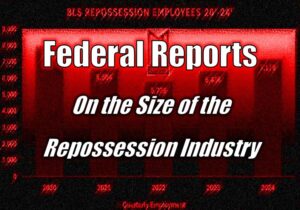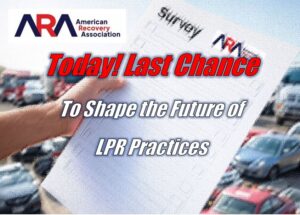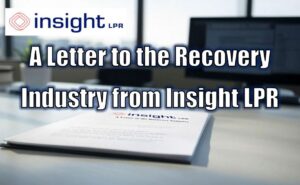Guest Editorial
For most, trying to actually read and understand an insurance contract (policy) is about as dry as Texas dust in August and about as easy to understand as advanced calculus. It can be additionally difficult to read and understand when the policy has a “package” of coverages designed to cover multiple risks.
This article, by American Transportation Insurance Group (ATIG) is designed to assist collateral recovery agency owners in better understanding those multiple coverages that are critically important to protecting their companies and their clients. In breaking down, explaining and giving examples of how each of these coverages work I want to first address two of those coverages that may be overlooked but are critically important to the recovery agency owner and his/her client:
- Coverage for 1099 contractors; make very sure that have this coverage. If necessary, call your insurance agent and have him/her explain this coverage and where it can be found in the policy. Many policies do not have this coverage and without it your recovery agency and your client could face huge litigation fees.
- Coverage for charges of Assault and Battery; this coverage means that, if you or one of your employees, or 1099 contractors are charges with Assault and Battery your insurance carrier will defend you in litigation. Again, many policies offered in the collateral recovery industry does not offer such coverage so, if in doubt, call your insurance agent, ask if your policy includes such coverage, have them explain it and where in the policy you can find it.
A. Commercial General Liability; Also known as “premises liability”, this coverage responds to Bodily Injury or Property Damage claims that occur at the business location designated in the policy. Example; a debtor, whose car has been repossessed comes to the covered business location to reclaim personal property, trips and falls on the steps, breaking a leg and sustaining other injuries. If the debtor files a claim, this coverage would respond. In addition, the General Liability coverage extends to Wrongful Repossession when the Wrongful Repossession Endorsement is included. The collateral recovery agency owner should always make sure this very important endorsement is included. The Wrongful Repossession Endorsement should contain language that indicates that, “this policy covers all operations necessary to repossession activity, including Wrongful Repossession.” Wrongful Repossession coverage responds to covered claims involving the physical act of repossession. Example; A collateral recovery specialist is charged with a Breach of Peace or other violation during the act of repossession. The policy will defend those actions but if the collateral recovery agent is found negligent the policy excludes any damages the court may apply.
B. Garagekeepers Liability; This portion of the policy responds to claims of damage to the recovered collateral while in the CARE, CUSTODY and CONTROL of the recovery agent. This coverage is for physical damage to the collateral such as theft, vandalism, mischief, fire and explosion. Example; While in the recovery agent’s storage facility, the collateral is stolen and two other vehicles are vandalized. If a claim is filed, the Garagekeepers section of the policy would apply. It is extremely important to know that there are three coverage options within the Garagekeepers section; Legal Liability, Direct Excess and Direct Primary. Rather than go into any lengthy discussion of these different coverage’s, suffice it to say that the most comprehensive and quickest to respond of these coverage’s is Direct Primary, and the recovery agent should insist upon this specific coverage.
C. On Hook Coverage; The collateral has been repossessed and the recovery agent is towing it back to his storage facility when the collateral breaks loose from the tow truck and crashes into a large and very stationary telephone pole, causing extensive damage. The On Hook Coverage would respond to such a claim.
D. Drive Away Coverage; simply stated, this coverage responds to claims made as a result of repossessing the collateral by driving it away, rather than taking it by tow truck.
E. Personal Injury Coverage; This is NOT a coverage for “physical’ or “bodily injury”, but instead responds to claims such as; false arrest, detention or imprisonment, malicious prosecution, wrongful entry or eviction; and oral or written publications that libel, slander, or violate rights of private occupancy.
F. Commercial Truck Coverage; When insuring the truck, it is important to disclose that the truck will be used for repossession activity. Not providing such disclosure will usually result in denial of claims and it will may also result in cancellation of the insurance contract.
G. Personal Effects Coverage; This coverage responds to claims where the debtor may claim that personal property contained in the collateral at the time it was recovered is now missing.
The coverage’s listed above are the normal coverage’s currently being required by lien holders, in addition to the Dishonesty Bond, which is a Fidelity insurance and must be written on a separate policy.
Clients usually require that the “package” policy provides for Commercial General Liability and Wrongful Repossession Liability in the amount of $1 million per occurrence with either a $2 million or $3 million Aggregate.
What is the meaning of “Wrongful Repossession”? There are a number of different situations where a “Wrongful Repossession” might occur. Initially it was erroneously thought that “Wrongful Repossession” meant repossessing the wrong collateral. We now know that anytime collateral is repossessed where there is no legal right to repossess, it is a “Wrongful Repossession.”
What many collateral recovery agents may not realize is that, in the event there is a violation of Breach of the Peace, the recovery agent can be sued either in local court or in federal court under the Fair Debt Collection Practices Act (FDCPA). Under Section 1692f (6) (a) of the FDCPA, it states, in part, “taking or threatening to take any non-judicial action to effect dispossession of disablement of property if; there is no present right to possession of the property claimed as collateral through an enforceable security interest.
Simply put, at the point of a Breach of Peace the recovery specialist no longer has the right to self-help repossession which means there is no longer a “present” right to take possession, and the repossession then becomes a Wrongful Repossession, which can be litigated in state or federal court.
ATIG offers insurance coverages specifically designed for the collateral recovery industry and the private towing industry to help protect you and your business from unforeseen losses. By Building our brand and our business on maintaining a hands-on approach t customer service and very competitive prices we retain 99% of our customers.
ATIG team members are located throughout the country and across multiple time zones, so you have extended hours to reach us by phone or email. And, when you call, you will always speak with an ATIG team member, never an automated attendant. As the country’s leading insurer of recovery agencies and private towing companies we credit our success to our unique insurance products, our highly competitive prices and prompt, professional service.
If you should have questions regarding your current repossession insurance coverage’s or would like a quote, we invite you to visit us at www.atiginc.com, or call our toll free number at 877-933-2550. American Transportation Insurance Group is your “go to” team your insurance needs.
Professional Service….Experience….Competitive Pricing
….That’s Who We Are
The “A”tig team












Facebook Comments